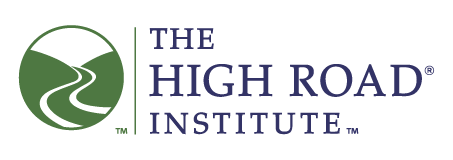Cancelled Flight
Last week, while speaking in Michigan, I got stranded when the airline cancelled all flights out of Grand Rapids because of a snow storm. I thought those were everyday events in the colder regions near the Great Lakes. Close the airport for three inches of snow?
My plan was to fly back to Seattle early Thursday morning, but the airline said the earliest return date would be Wednesday of the next week. While Grand Rapids is a nice place, I couldn’t afford six additional days of food and lodging with no income to offset it.
I contacted Allegiant Airlines, recommended by a local, who informed me, “They are cheap.”
“What a testimonial,” I thought.
Allegiant doesn’t fly to Seattle; the closest destination is Las Vegas. After determining that I could get a flight from Las Vegas to Seattle that same day, I took the last seat, flying out midday Friday, a day and a half later than planned.
Fees Galore
“Low cost carrier” is how Allegiant’s website describes what it does. But… that is merely half the story. Only after you book a flight and get charged a bounty of extra fees, do you realize that “low cost” requires an asterisk or footnote. I’ve flown all the major and minor carriers for decades and I have never seen so many fee add-ons. I was charged for:
| Segment fee | $ 4.00 |
| PFC | $ 4.50 |
| Prepaid bags | $25.00 |
| Carry-on bag | $18.00 |
| Seat selection | $14.00 |
| Carrier usage | $13.00 |
| Trip flex | $14.50 |
| Credit card surcharge | $ 8.00 |
These fees amounted to $101.00! But wait, there is more! If I had not printed the boarding pass at my hotel, I would have had to pay another fee ($5.00) for an Allegiant employee to do that for me. And if I wanted a soft drink during the flight, I had to pay $2.00 for the privilege.
My ticket price went from cheap ($245.50) to non-competitive ($346.50). If I had been able to fly the same route using my preferred airline, Southwest, the entire ticket would have cost me $249.00.
Is Your Model Flawed?
This article is to point out that Allegiant has a business model for which employees have to apologize. That sound strange, yet it is true.
When I checked in, some customers were complaining to the counter employee who apologized to them, saying. “I am sorry, there is nothing I can do about the fees.”
At the gate waiting to board, I heard complaint after complaint about these fees and I learned about the tricks some passengers use to avoid them.
During the flight, I thanked a flight attendant for her courtesy and service. While taking my compliment in, she told me, “Except for the ridiculous fees, we try to give good service.” I could tell by her reaction she was used to apologizing for their fees.
Can you imagine going into Nordstrom and being told you have to pay a fee for the employee who waited on you, and another for the cashier to ring up your purchase, and a fee for their shopping bag?
Can you imagine going into a Lexus dealer and being told as soon as you enter that you will be charged for sitting in their showroom, for looking at the features brochure, and for taking a test drive?
Trickery Does Not Build Loyalty
For companies where quality products and services are part of their business model, you know that tricking customers by using pricing gimmicks would not fly with the customers [pun intended]. Yet some airlines do this because their business model is basically to fill planes and NOT TO retain customers or give customers a “hero experience.” To learn how to give this sort of experience to your customers, check out Earl Bell http://www.earlbell.com
As a leader of your organization, how do you know if your employees are not regularly apologizing for policies and practices that occur because of your business model?
Here are tactics that will help you know if your model is helping build customer loyalty and a positive brand.
1) Utilize mystery shoppers to uncover the behaviors you cannot see.
2) Make a strong effort to obtain customer feedback.
3) Talk with your employees and listen to their ideas, concerns, and complaints.
4) Be part of a peer group and ask them to evaluate your business model and the sorts of behaviors it could or is fostering.
5) Take this cumulative feedback seriously and use it to improve your model.
Any organization that tricks its customers or creates an atmosphere where employees have to apologize for policies and practices is flawed. These actions become self-fulfilling prophecies because the more you upset your customers, the less they like you and buy from you. Due to the flawed business model, this usually means having to engage in more trickery or added fees just to stay in business.
I would prefer to do business with a company and be part of an organization whose business model is built on pride and quality rather than apology and trickery.
